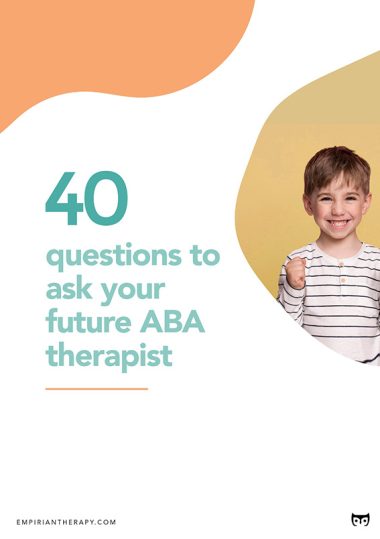As social creatures, so much of our life is affected by how we interact with others.
The ability to form relationships with our peers and to meaningfully interact with them is a fundamental skill that we all need throughout our lives.
But even for most adults, this is not always easy. Navigating social skills is an almost universal challenge in some ways—but all the more so for children with special needs or with other developmental difficulties.
Thankfully, there are effective and manageable ways for those struggling with these skills to learn how to improve them.
Articles, Research & Blogs
What you can do at home: The era of social distancing has made it even harder than usual for some children to build their social skills. For those worried about their child missing out on the kinds of interactions that normally shape our ability to connect with others, this short article from the Child Mind Institute provides some simple yet helpful little tasks one can incorporate into home life to make up for some of this gap. Suggestions include things as easy as taking turns during conversation or pausing TV shows to discuss and relate to what the characters are thinking or feeling.
A digestible overview: In the article, Trouble with Social Skills, from Understood is very compact and easy to read, yet full of useful information for both understanding the challenge and taking action. It features a clickable module of “Quick Tips,” suggesting small but helpful ways to guide your child’s behavior in the right direction. It also details some key background information to help understand the nature of these challenges, and answers some frequently asked questions in the process.
An age-based breakdown: The post, Social Skills Grade by Grade from Scholastic breaks the topic down by age and grade level, pointing out specific skills that a child should be developing or working on at different points in their early life. The resource goes through each grade, from Kindergarten to 5th Grade, and identifies a set of skills to focus on for each one, as well as tips on how to teach them. This content is based on what teachers will actually be expecting of their students at these various ages, and on the types of scenarios children of these ages might encounter in a school setting.
Fun activities: Some research based strategies in this post outlines eight fun activities that parents can try in order to teach better social skills. The activities include things like telling stories, acting out hypothetical scenarios and playing games. In fact, it even lists a few board games specifically designed for this purpose. For each suggested activity, the article goes into detail to explain how it can help with skills such as showing empathy, cooperating and other positive social behaviors.
Books Worth Reading
For further reading on ways to improve a child’s social skills, we recommend the following books:
- Social Skills Activities for Kids: 50 Fun Exercises for Making Friends, Talking and Listening, and Understanding Social Rules
- Tough Kid Social Skills Book: Getting along with Others—Helping Tough Kids Learn and Use Effective Social Skills
- Getting from Me to We: How to Help Young Children Fit in and Make Friends
- The Science of Making Friends: Helping Socially Challenged Teens and Young Adults
- Let’s Be Friends: a Workbook to Help Kids Learn Social Skills & Make Great Friends
You could also check out this list of 10 Best Books to Teach Social Skills to Children from the Education and Behavior online library. A brief summary of each book is provided, along with links to where the books can be purchased.
Building social skills is a significant part of a healthy child’s development, and one that can greatly improve their life in the long run. It’s okay for a child to need help in this area. Thanks to our trained experts and the best available scientific data, meaningful improvement is achievable.
To inquire about possible ways of addressing your child’s social skills, please reach out to the Empirian Therapy team. We are always happy to help.


